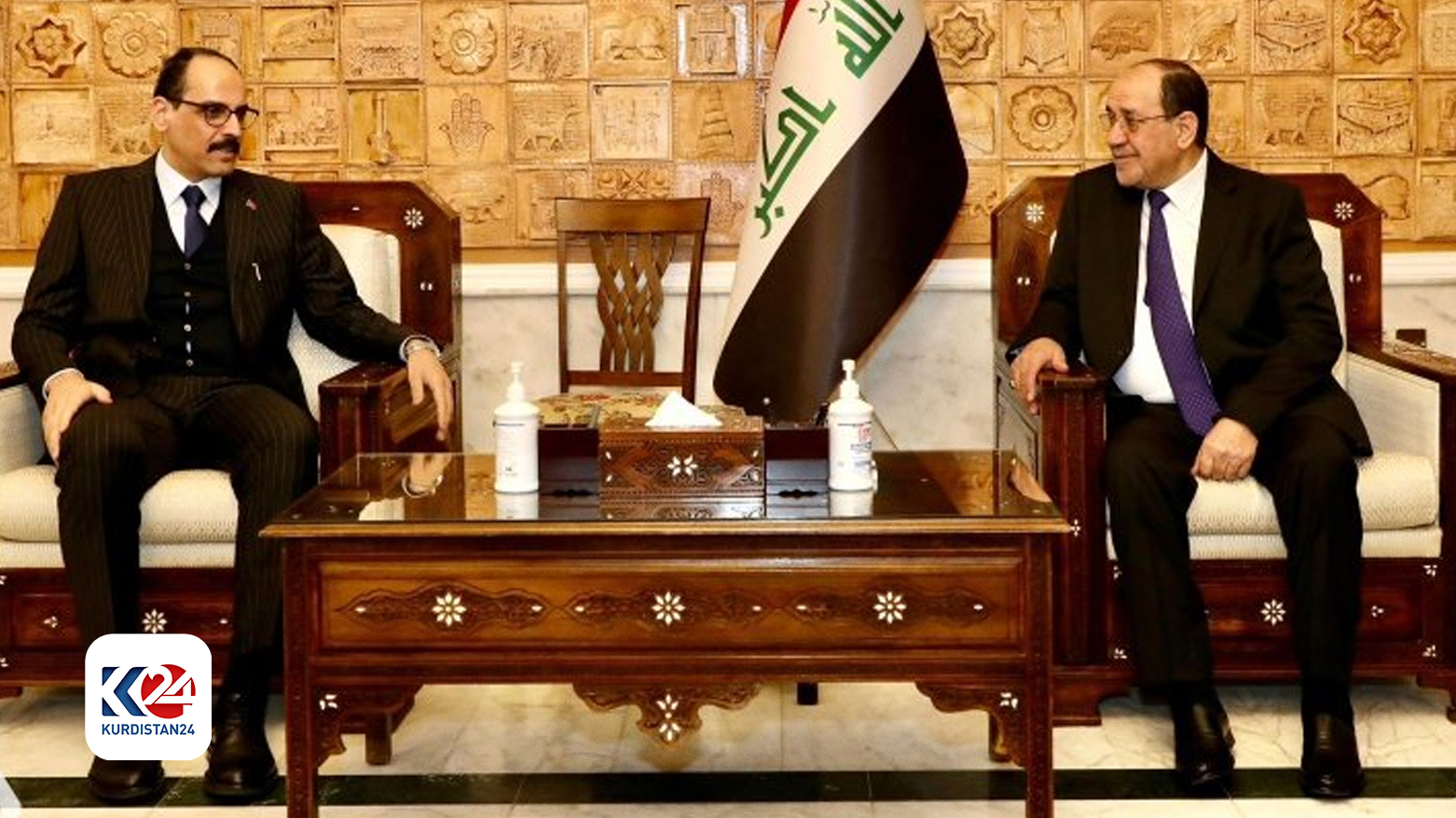Turkish intelligence chief visits Iraq

ERBIL (Kurdistan24) – The head of the Turkish intelligence agency visited Iraq on Tuesday and convened with top Iraqi leaders to discuss bilateral relations as well as security developments.
The current visit is the first of its kind by İbrahim Kalın, the director of the National Intelligence Organization of Turkey, widely recognized by its Turkish acronym MIT, to Iraq.
He has met with Nouri Al-Maliki, the former Iraqi prime minister and head of State of the Law Coalition, in Baghdad, where the two reviewed the “bilateral relations” as well as the latest developments in the region, per a statement from the Iraqi leader’s office.
Al-Maliki has also discussed the border security and concerns with the Turkish official.
Turkey and Iraq have had rocky relations in the past decades, largely due to the presence of the Kurdistan Workers’ Party (PKK) which has been fighting Ankara since the mid-1980s.
Iraq has condemned Turkish attacks on suspected PKK members and positions inside its territory, citing the repeated aerial attacks as a fringe on its sovereignty.
Bolstered by its advanced drone industry, Turkey has ramped up its drone strikes in recent years, particularly in the urban centers of Iraq and the Kurdistan Region, to target suspected PKK positions.
Similar strikes in the past have also been blamed on Turkey, which have resulted in casualties, including senior PKK militants.
Kurdistan Region officials regularly call on Baghdad, officially in charge of border security affairs, to prevent the insurgents and foreign militaries from engaging in hostilities within its territory. Officials have voiced concerns about increased militia forces presence in the area.
Much of the conflict has been fought in the border areas of the Kurdistan Region, which has endangered the civilian population.
